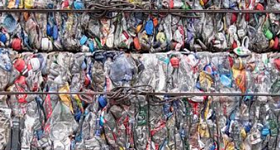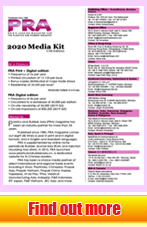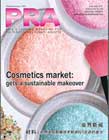PRA Chinese
Rubber Journal Asia Injection Moulding Asia Energy, Oil & Gas Asia
VISIT OUR OTHER SITES:
PRA Chinese
Rubber Journal Asia
Injection Moulding Asia
Energy, Oil & Gas Asia
China to halt single-use plastics by 2025; Malaysia sends back foreign plastic waste

After having banned imports of foreign plastic waste for recycling in 2017, China has now said that it plans to put a stop on the sale and production of single-use plastics starting this year.
In 2008, China also tried to introduce a ban on the giving away of free plastic bags and the production of ultra-thin bags.
According to the latest plans put forward by the National Development and Reform Commission and the Ministry of Ecology and Environment, non-degradable plastic bags will be banned in major cities by the end of 2020 and in all cities and towns by 2022. Markets selling fresh fruits and vegetables will have until 2025 to phase out the bags.
The plan targets a variety of plastic types and industries over the next five years:
- A ban on the production and sale of plastic bags less than 0.025 mm thick
- A ban on single-use straws in restaurants by the end of 2020
- Restaurants to reduce the use of plastic items by 30%
- Hotels not to give out free plastic items after 2025
The ban comes on the heels of China announcing that it’s mega-dump, the largest in the country is full 25 years ahead of schedule. The Jiangcungou landfill in Shaanxi Province is the size of 100 football fields and was built to receive 2,500 tonnes/day of waste. Instead, the landfill received 10,000 tonnes/day of waste.
Thus, the government has also announced it would work to create recycling programmes and promote the use of recycled plastics.
Though China is one of the largest waste producers in the world, producing 60 million tonnes of plastic waste in 2010, the US produces more waste per person than China, with each citizen producing an average of 808 kg/year, according to the Global Waste Index 2019. To date, there are three states in the US that have banned single-use plastic bags. California was the first state to ban its use, followed by Hawaii then New York. The ban of single-use plastic bags in New York will go into effect in March of 2020. While those are the current states that have banned single-use plastic bags, numerous cities and counties across the country have banned their use.
Meanwhile, China is not the only country in Asia that has cracked down against single-use plastics. Thailand announced earlier this year that single-use plastic bags would be banned in major stores, with a complete ban across the entire country in 2021.
Indonesia's capital Jakarta also is banning single-use plastic bags in department stores, supermarkets and traditional markets by June 2020. The Indonesian island of Bali has also banned single-use plastic.
Malaysia no more a dumping ground
Elsewhere, Malaysia has sent back 150 shipping containers of illegally imported plastic waste back to their countries of origin, including the US, UK, France and Canada, saying that it won't be the "garbage dump" of the world. According to the country’s Environment Minister Yeo Bee Yin, 3,737 tonnes of rubbish will be returned to 13 countries.
Of the 150 containers, 43 were sent back to France and 42 to the UK, while the US will receive 17 and Canada 11. Yeo also said there were plans to send back further containers in the near future.
Malaysia was the destination for illegal plastic waste, after China put a halt on the recycling of plastic waste from foreign countries in 2017. Wealthier countries have been sending plastic waste to Malaysia since then, but officials say they are struggling to cope with the amount that is being brought in illegally.
A recent Greenpeace report found that during the first seven months of 2018, plastic waste exported from the US to Malaysia more than doubled compared with the previous year.
The war on plastic waste also played out in the Philippines, which sent back container loads of plastic waste to Canada last year.
And in May 2019, the governments of 187 countries, including Malaysia, agreed to add plastic to the Basel Convention, a treaty that regulates the movement of hazardous materials from one country to another, to combat the dangerous effects of plastic pollution worldwide. The US did not partake in the agreement.
(PRA)
Subscribe to Get the Latest Updates from PRA Please click here
©2020 Plastics and Rubber Asia. All rights reserved.

©2020 Plastics and Rubber Asia. All rights reserved.
Home Terms & Conditions Privacy Policy Webmail Site Map About Us











































































